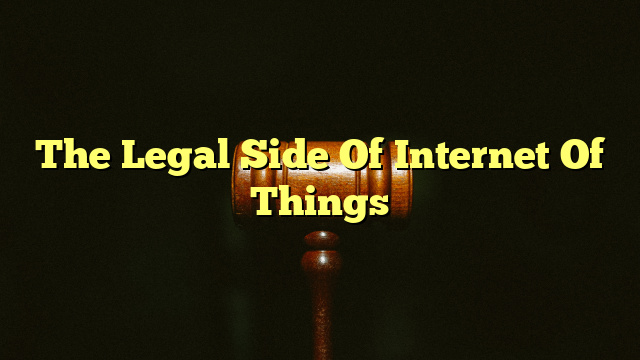The Legal Side of Internet of Things
Table of Contents
1. What is the Internet of Things legislation?
The Internet of Things (IoT) refers to the network of physical devices, vehicles, appliances, and other objects embedded with sensors, software, and connectivity that enables them to connect and exchange data. As the IoT continues to grow, legislation is being developed to address the legal implications and challenges associated with this technology.
2. Should the Internet of Things be regulated?
There is ongoing debate about whether the IoT should be regulated. Proponents argue that regulation is necessary to protect consumer privacy, ensure data security, and prevent potential harm caused by insecure IoT devices. Opponents, on the other hand, argue that regulation could stifle innovation and hinder the development of new IoT technologies.
3. Is the Internet of Things Secure?
The security of IoT devices has been a major concern. Many IoT devices lack proper security measures, making them vulnerable to hacking and unauthorized access. This poses risks to consumer privacy and data security. Efforts are being made to improve IoT security through the development of industry standards and best practices.
4. What is the IoT law in California?
In 2018, California passed the California IoT Security Law, which requires manufacturers of connected devices to equip them with reasonable security features. The law aims to prevent unauthorized access, use, and disclosure of personal information collected by IoT devices. It also requires manufacturers to provide a unique password for each device or require users to set up their own unique password upon first use.

